- Monday, 23 June 2025
Srijana’s success story in Dhaka industry
By Thakur Senehang, Tehrathum, Sept. 7: Srijana Teyung of Solma, Laligurans Municipality of Tehrathum, district wanted to learn skilled work from an early age.
However, her family’s weak financial status barred her from acquiring training or skills for livelihood.
Meanwhile, while going to school at early years of her life about two and a half decades ago, she used to draw pictures and watch women weave Dhaka cloth in the houses next to the school. She used to request the women weaving Dhaka hats to teach her the skill.
But now, her status has been changed drastically. She earns a handsome amount of money from her Dhaka Textile Industry in Myanglung, district headquarters of the district.
She is known as a successful Dhaka entrepreneur, 35 people are employed in her enterprise where they earn up to Rs. 15,000 per month.
A three-month training on Dhaka textile weaving, which was conducted by the Cottage and Small Industries Development Committee with the support from the Micro-Enterprise Development Programme (MEDEP) 22 years ago in 2000 proved instrumental in developing entrepreneurship in her and changing her economic status.
Srijana was the best trainee in the programme which brought her some cash reward then. It boosted her confidence that she could begin her business to produce Dhaka cloth and sell in the local market and become self-sufficient.
The three months of training made her skilled in producing different kinds of dresses, shirts, choubandis, sarees, scarves, ties, coats, blouses, handkerchiefs, shawls and hand bags.
After the training, she started weaving looms in her own home saying that all the Dhaka business was centred in the market areas only. Gradually, her income and savings both started to increase. Srijana remembers that it was difficult to meet the demand of Dhaka cloth even in the village. To address the situation, she taught more than 100 people to weave the cloth.
Her hands never got tired of the work of her choice. The market was never an issue because the clothes she prepared were artistic and attractive.
As the work of making clothes continued, she decided to start an industry in Myanglung with the money saved from her business after managing the household and family needs.
In 2011, she registered Srijana Dhaka Textile Industry and started commercial Dhaka production.
Meanwhile, monthly savings from the industry also started to increase. The industry now earns about Rs. 150,000 a month. “More than 300 people have learned the skill of weaving Dhaka cloth in my industry,” she said.
Srijana said that she came to know about the value of the labour after a training conducted by Deurali Society under the erstwhile Poverty Alleviation Fund, with the help of the Japan Social Development Fund. Now, she is planning to build a home in Myanglung.
After learning the skills of women entrepreneurs who are weaving Dhaka cloth professionally have become experts in creating attractive design of Dhaka, cloth colour, market management and pricing.
There are about 5,000 Dhaka entrepreneurs in the district of which three dozen are large-scale industries.
Navin Paudal, Senior Industry Development Officer of the Cottage and Small Industries Development Committee, said that there are three dozen large Dhaka industries and more than 2,000 domestic Dhaka industries in the district.
Dhaka materials prepared in Terhathum are exported to various places in Nepal and India including Sikkim, Darjeeling and Kolimpong as well as countries like Singapore, Hong Kong, Japan, United Kingdom, and United States of America.




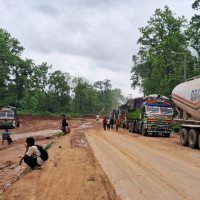

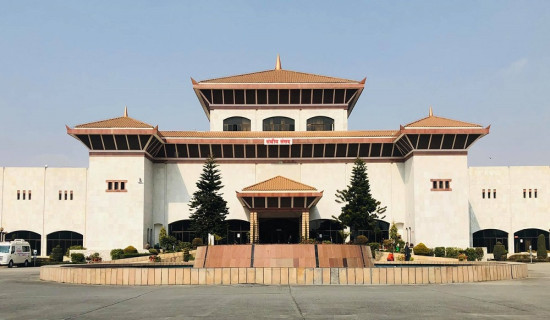

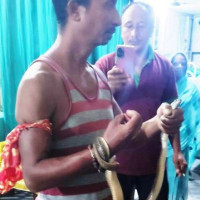

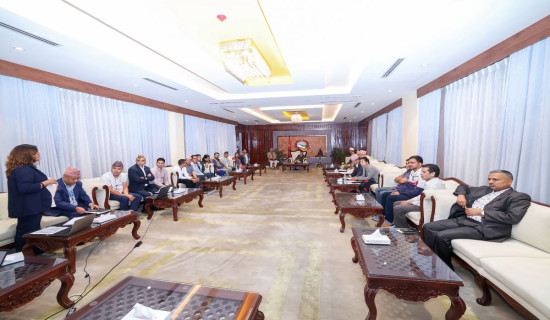
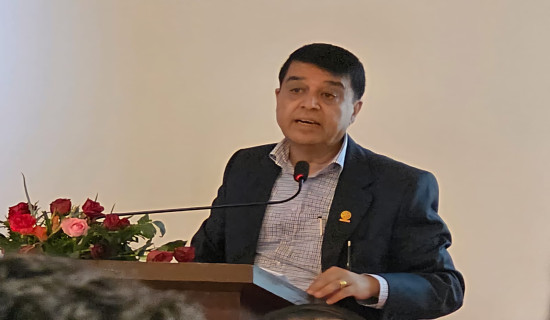

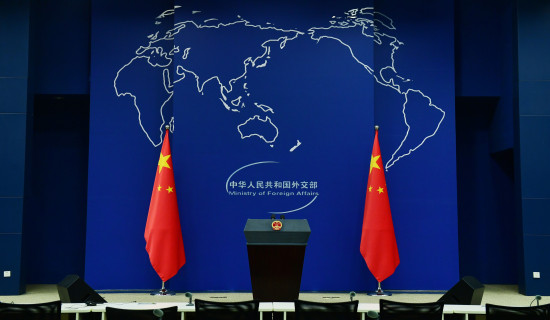
-original-thumb.jpg)